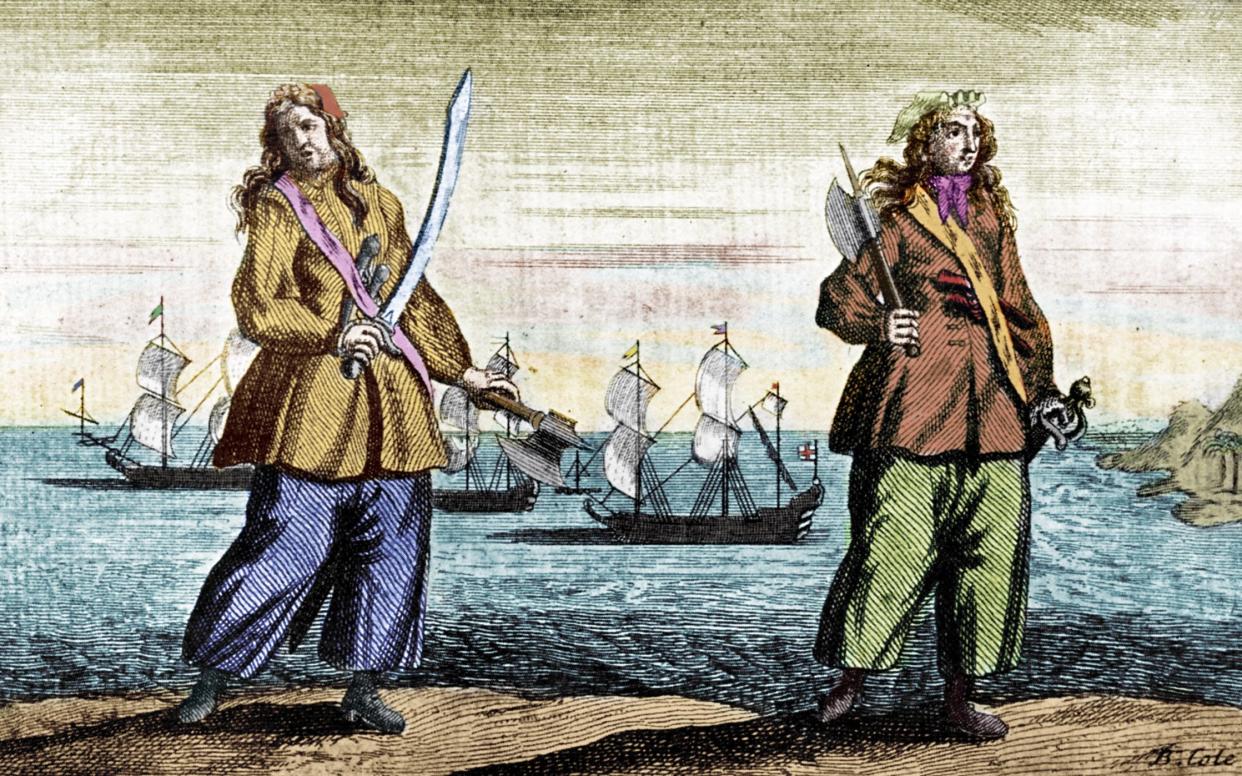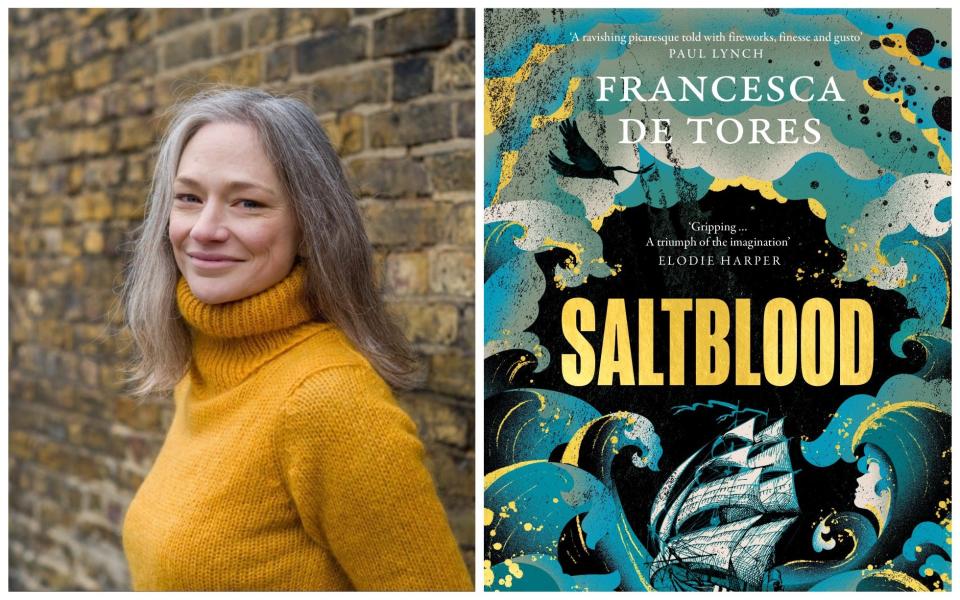A tale of cross-dressing and wild adventure from the golden age of piracy

Born to destitution in late-17th-century England, Mary Read – the real-life pirate and fictionalised narrator of Francesca de Tores’s new novel, Saltblood – wears the identity of a boy from birth. Disguised by her mother as Mary’s deceased older brother, so that they might hang onto an allowance from a step-grandmother, Mary maintains the pretence in her first job because boys command a higher wage than girls, and later, by choice, because she relishes the “inbetweenness” fostered by her secret.
First, she’s a “boy” in domestic service, the Navy and the Army; subsequently, having given birth and no longer able to hide her body, she becomes a female sailor on a merchant vessel, and finally a pirate ship. Wherever Mary goes, we see time and time again how cheaply life is held. De Tores delights in describing the gore and the grime, and kills peripheral characters off in historically accurate ways with barely concealed glee. Sailors and soldiers are whipped, contract fatal (now curable) infections, die from scurvy, are crushed underfoot by horses, have their guts torn out by bayonets.
Mary is neither a patriot nor a hero, and knows how little her life is valued. In the midst of hand-to-hand combat with a Frenchman, she observes how they both must fight to the death, for battles have “nothing to do with such small folk as us”. As she survives, others perish, returning to her as ghosts: her older baby brother, Mark, her vituperative Ma, her Navy buddy Marston, her husband, her stillborn child. The grotesque and mournful congregation grows as she ages, mounting a collective reproach: Why should you be alive when I am dead?
The habit of the times is butchery. Mary’s sole loyal companion is a crow who follows her after she buries its dead fellow. In its presence, she finds solace: the creature doesn’t apologise or explain itself. Caught in the early-18th-century warring of imperial states, and the whirlwind pace of sea-borne trade, Mary is, if not seeking answers, certainly seeking a way out – a route towards some kind of freedom.

To achieve this, she transforms into what she hasn’t yet been: an outlaw. On joining a pirate ship captained by “Calico” Jack Rackham, and finding herself free from any expectations not covered by their (almost) egalitarian articles, she can engage her own preferences and pleasures. For aboard too is Anne Bonny, a woman whose wild behaviour and beauty Mary admired in the pirate capital of Nassau. Anne and Jack’s relationship doesn’t prevent Anne and Mary’s own affair from blossoming – nor does this relationship, in turn, prevent Mary taking to her bed a young man who briefly joins the ship. “For years I feared being exposed for what I truly am,” she explains. Here, she finds herself content as “both and neither”.
Flying against the wind can only last so long. When a proclamation offering a bounty for the capture of pirate vessels sows suspicion among the pirate brotherhood, turning every ship into a potential threat, the crew take a pardon to ferry goods between islands. The pennies they receive for this drudgery hardly cover their expenses and they soon return to pirating on the sly. The audacious theft of a new ship finally sets the authorities and privateers on them; after a chase, they’re captured and the crew sentenced to death.
Read, Bonny and Rackham are all historical figures, so the end of the story isn’t de Tores’s invention alone. While the book is well-researched, de Tores’ focus is really the personal dramas – high-octane romances which leave beds sweaty from sex, the elation Mary feels at climbing the rigging for the first time. In an introductory note, the novelist is clear that she is “not a historian” and her pacy narrative holds to the last, yet her love of plot comes at the expense of characterisation: Saltblood often feels like reading a film script, before an actor has animated the characters. Her writing lacks subtlety and the deft interiority of the best historical fiction.
For all Mary’s talent for survival, the few who outlive her are cynics who have not succumbed to the hope that a better world is actually possible: Anne, whose gift is to always be leaving, and Sam, a formerly enslaved man who quits their crew shortly after joining. More than anyone, he has reason to distrust the words of a white man – even when that man is Jack Rackham and what’s promised is freedom.
Saltblood is published by Bloomsbury at £16.99. To order your copy for £14.99 call 0808 196 6794 or visit Telegraph Books

 Yahoo News
Yahoo News 
